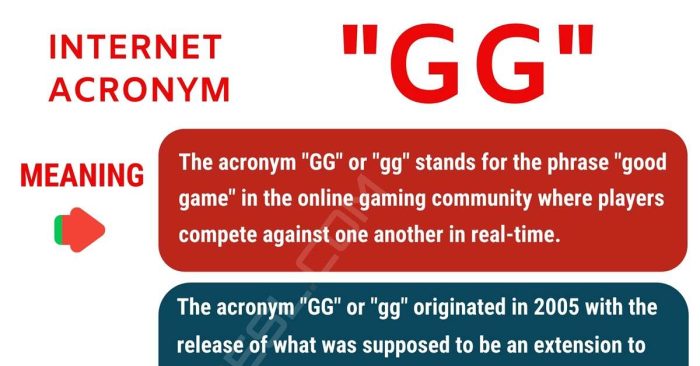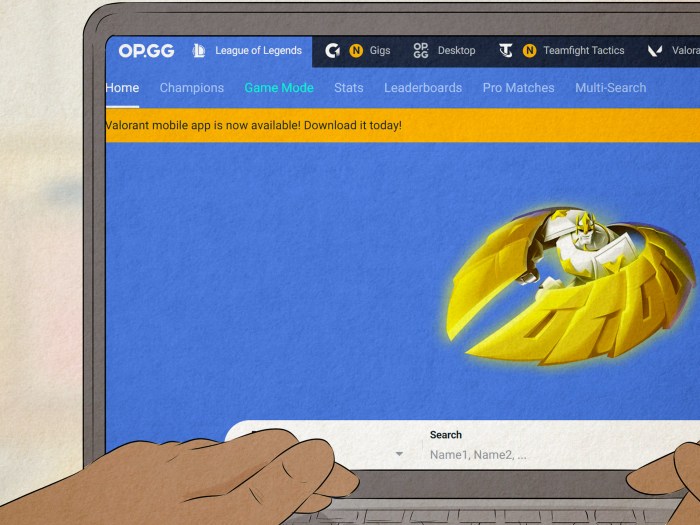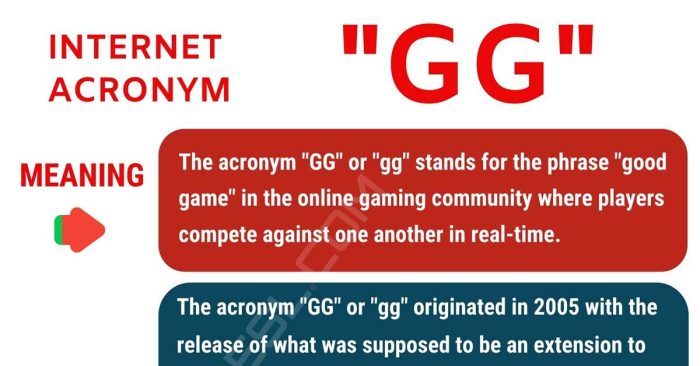Page screen fight club, a phenomenon of online arguments and social media clashes, is explored in this comprehensive guide. From the historical context of similar online interactions to the potential implications on individuals and society, we delve into the intricacies of this digital battlefield. Understanding the motivations, dynamics, and various interpretations of “page screen fight club” is key to navigating the complexities of modern online discourse.
This exploration will examine the different facets of page screen fight club, ranging from the definition and context to potential interpretations and real-world examples. We’ll also analyze the associated communities, cultural influences, and the possible impact on technology and society. Visual representations will further clarify the concept.
Defining “Page Screen Fight Club”
The term “Page Screen Fight Club” conjures a vivid image of digital conflict, a virtual arena where opinions clash and arguments flare. It suggests a space dedicated to heated discussions, often centered around specific topics or online personalities. This concept, while potentially nebulous, can be unpacked to reveal layers of meaning and usage.This term likely originates from the intersection of online communities and social media platforms.
It hints at a passionate, even combative, engagement with content displayed on computer screens and mobile devices. The “fight” aspect underscores the intensity of the discourse, while the “club” component implies a sense of shared interest or belonging among participants.
Potential Interpretations
The term “Page Screen Fight Club” can be interpreted in several ways, depending on the context. It could refer to online forums dedicated to debating current events, or it might denote a group of individuals actively engaged in a particular online discussion. It’s not just about the heated exchange; it also encapsulates the collective energy surrounding the online platform.
Ultimately, the meaning is shaped by the specific context of its use.
Variations and Related Terms
Variations on this theme might include “Social Media Squabble Society,” “Cyber Debate Den,” or “Virtual Argument Circle.” These terms reflect the underlying concept of intense online discourse centered around a specific subject matter.
Table of Potential Interpretations
| Interpretation | Contextual Usage | Example | Related Concepts |
|---|---|---|---|
| Online forum dedicated to passionate debates on political issues. | Political discussion boards, social media groups focused on current events. | A forum dedicated to discussing the merits of different political candidates. | Political discourse, online activism, public opinion. |
| A group of individuals engaged in a heated online discussion around a specific online personality. | Social media platforms, fan communities, online gaming communities. | A group of fans passionately debating the merits of a popular streamer. | Social media trends, online fandom, public perception of personalities. |
| A space where users engage in intense debates about technology or gaming. | Online gaming communities, technology forums, social media communities centered around technology. | A subreddit dedicated to comparing and contrasting different video game platforms. | Gaming culture, technological advancements, online communities. |
| A metaphorical representation of the intense online discourse surrounding a particular topic or trend. | Broader cultural discussions about the nature of online interaction, internet culture, and its effects on society. | Discussions about the role of social media in shaping public opinion. | Online culture, social dynamics, impact of technology on society. |
Historical Context & Evolution
The concept of “page screen fight club,” a space for online interaction characterized by intense arguments and debates, is not entirely novel. It draws on a rich history of online and social phenomena that have explored the dynamic interplay between human connection and conflict in digital spaces. Understanding this history helps illuminate the potential evolution and implications of this relatively new phenomenon.The rise of the internet and social media has fostered new forms of communication and interaction, and with that, new avenues for disagreement and conflict.
This isn’t simply a modern problem; online interactions have a history of escalating tension and disagreement. Analyzing the evolution of similar online interactions allows us to better understand the potential triggers, dynamics, and outcomes of “page screen fight clubs.”
Historical Precedents of Online Conflict
Online forums and discussion boards, predating social media platforms, were often fertile ground for heated debates. Early online communities, like Usenet newsgroups, saw the emergence of passionate arguments, sometimes leading to the formation of distinct factions. These early online spaces, though lacking the immediacy and visual elements of modern social media, laid the groundwork for the potential for conflict to escalate within online communities.
Evolution of Online Interactions
Examining the evolution of online interactions reveals key shifts in how people communicate and engage in online conflicts. From text-based forums to visually-driven social media, the tools and context of these interactions have changed dramatically, influencing the nature of disagreements. This evolution is critical to understanding the nuances of “page screen fight club” and its potential future trajectory.
Comparative Analysis of Online Interactions
| Time Period | Platform/Phenomenon | Characteristics | Examples |
|---|---|---|---|
| 1980s-1990s | Usenet Newsgroups, Early Forums | Text-based discussions, often focused on specific topics. Emergence of passionate debates and subcultures. Moderation was often less structured. | Arguments over technology, politics, and cultural issues. Development of distinct viewpoints in newsgroups dedicated to specific topics. |
| 2000s | Social Networking Sites (e.g., MySpace, Friendster), Online Communities | Rise of user-generated content, personal profiles, and social connections. Discussions often intermingled with personal interactions. Moderation efforts became more common. | Discussions on social issues, personal experiences, and popular culture, often interwoven with user profiles and connections. The rise of online communities focused on shared interests. |
| 2010s-Present | Social Media Platforms (e.g., Twitter, Facebook, Reddit), Online Forums | Increased visual engagement, immediate feedback loops, and the prevalence of viral trends. The potential for rapid escalation of conflicts, due to a multitude of factors like public exposure and emotional responses. | Trending topics, political debates, and online activism often sparked intense online discussions. The speed and visibility of these conflicts are a defining feature of this period. |
| Present | Page Screen Fight Clubs | Highly focused, often niche communities centered on specific issues or interests, driven by online debate. Intense arguments and personal attacks are prevalent. | Discussions about particular political stances, conspiracy theories, or complex cultural topics often evolve into heated arguments on dedicated pages or platforms. |
Potential Interpretations & Examples
The “Page Screen Fight Club” concept encompasses a broad spectrum of interactions and conflicts that unfold within the digital realm. It’s not merely about online arguments; it’s about the dynamic interplay of personalities, differing viewpoints, and the unique characteristics of digital communication. This exploration delves into the diverse interpretations of this phenomenon, highlighting the various ways individuals engage in conflict and creative expression online.Beyond simple online disputes, “Page Screen Fight Club” encompasses a wide array of digital interactions, ranging from passionate debates on social media to the nuanced conflicts within online gaming communities.
It underscores the unique challenges and opportunities presented by digital platforms in fostering both constructive and destructive exchanges.
Online Arguments and Debates
Online platforms have become fertile ground for heated arguments and passionate debates. These interactions often involve individuals with differing perspectives engaging in online discussions. The anonymity or perceived anonymity of online spaces can sometimes embolden individuals to express opinions they might not voice in person, leading to both constructive dialogue and aggressive exchanges.
“The internet, for better or worse, allows for the rapid and widespread dissemination of information and opinion, fostering both constructive debate and the potential for online conflict.”
Real-world examples include passionate discussions on social media regarding political issues or controversial topics, or the exchange of opposing viewpoints on online forums. The intensity and volume of such exchanges can vary significantly, from polite disagreement to aggressive personal attacks.
Page screen fight club is all about those epic moments, you know? Like, seeing Hot Chip absolutely nail their performance on Jimmy Kimmel – watch Hot Chip on Jimmy Kimmel – totally elevates the whole experience. It’s the kind of thing that fuels the page screen fight club, reminding us how much can be packed into a single screen.
Ultimately, the page screen fight club is about celebrating those perfect moments of visual entertainment.
Social Media Conflicts
Social media platforms provide a unique context for “Page Screen Fight Club” due to their inherent features, like public posts, instant feedback, and the ability to rapidly share information. Conflicts often arise from perceived slights, misinterpretations, or even the desire to gain attention. The constant connectivity and immediate nature of social media can escalate tensions quickly.
“Social media’s constant connectivity can quickly escalate disagreements into heated conflicts, fueled by the immediate nature of the platform.”
Examples include public shaming, targeted harassment campaigns, and the spread of misinformation or disinformation, all of which manifest within the confines of social media platforms.
Creative Expression and Online Communities
“Page Screen Fight Club” isn’t always about conflict. It can also represent the dynamic interactions within online communities dedicated to creative expression. Online gaming communities, fan forums, and creative platforms often foster a vibrant exchange of ideas, feedback, and criticism, shaping creative work and community identity.
Page Screen Fight Club is all about the anxieties around screen time, right? But then you see stuff like Sacha Baron Cohen getting politicians to cite Cardi B and Blink 182 as reasons to arm kids, which completely throws the whole thing into a different light. It’s a reminder that sometimes the most outrageous ideas come from unexpected places, making the whole page screen fight club debate feel even more complicated.
Maybe we need to rethink our assumptions.
“Online creative communities often foster a vibrant exchange of ideas, feedback, and criticism, shaping creative work and community identity.”
Examples include collaborative writing projects, online art competitions, and discussions surrounding creative works across various online platforms. The interactions within these communities can be both supportive and challenging, encouraging growth and refinement within the creative process.
Common Themes
Across these diverse examples, several recurring themes emerge. The role of anonymity, the speed of communication, and the lack of face-to-face interaction are crucial factors in shaping the dynamics of “Page Screen Fight Club.” The absence of nonverbal cues can lead to misinterpretations, escalating conflicts, and the proliferation of negativity. The potential for misrepresentation and manipulation further complicates the online environment.
Page Screen Fight Club is always a wild ride, but lately, the drama has been off the charts. The tragic news of Atlanta rapper Trouble, shot dead at 34, shook the scene and made everyone pause. It’s a sobering reminder of the struggles and dangers in the rap game, and it casts a long shadow over the page screen fight club, making us question everything we thought we knew.
Hopefully, the industry can learn and grow from this tragedy.
Associated Communities & Culture
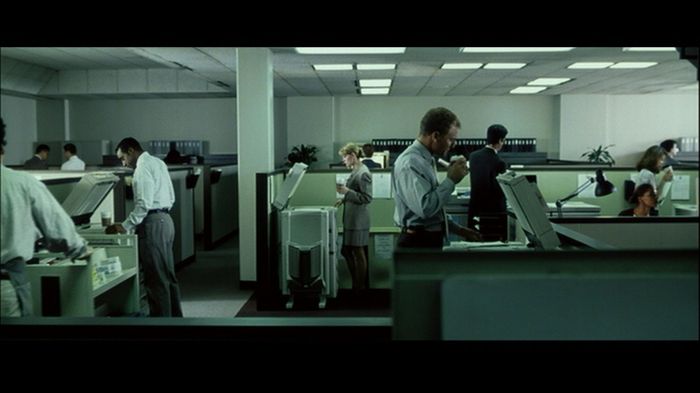
The concept of “Page Screen Fight Club” suggests a specific online interaction dynamic, potentially fostering unique communities and cultural expressions. These communities likely revolve around shared interests in competitive displays of skill, creativity, or engagement on digital platforms. Understanding these communities and their cultural influences is crucial to comprehending the full scope of “Page Screen Fight Club.”The existence of such communities implies shared interests and engagement with a particular type of digital interaction.
These groups might find common ground in specific platforms, software, or even particular themes of conflict or creativity. For example, a “Page Screen Fight Club” community might thrive on social media platforms or dedicated gaming forums. The cultural context of these groups would influence how they engage with the concept.
Characteristics of Associated Communities
Different communities will exhibit varying characteristics based on their specific interests. However, common themes could include a strong sense of camaraderie among participants, a shared understanding of the rules or conventions of the “fight,” and a focus on creative or technical prowess. Some communities might emphasize strategy, others might prioritize emotional engagement, and still others might value the spectacle of the interaction.
Cultural Influences on “Page Screen Fight Club”
Cultural influences, both online and offline, will shape how participants engage with the concept of “Page Screen Fight Club.” The values and norms of these communities might vary significantly, influencing the level of aggression, creativity, and even humor allowed within the “fights.” For example, a community rooted in competitive gaming might prioritize strategy and technical skill, while a community centered around social media might focus on witty banter and meme culture.
Online Community Interpretations and Reactions
This table Artikels potential interpretations and reactions to “Page Screen Fight Club” across various online communities.
| Community Type | Interpretation of “Fight” | Reaction to Competition | Cultural Influences |
|---|---|---|---|
| Gaming Community | Directly competitive gameplay, focusing on skill and strategy within a game environment. | Focused on achieving victory, with a competitive yet often respectful atmosphere. | Gaming culture emphasizes strategy, teamwork, and a structured competitive environment. |
| Social Media Community | A witty exchange of opinions, often involving sarcasm, humor, and meme culture. | Engagement and entertainment, often valuing creativity and cleverness over outright victory. | Social media culture emphasizes engagement, humor, and quick wit. |
| Creative Writing Community | A contest of creative writing, where the “fight” is about originality and storytelling. | Recognition for creativity and innovative ideas, with a focus on artistic merit. | Creative writing communities value storytelling, imagination, and the expression of unique perspectives. |
| Online Debate Forum | A clash of opposing viewpoints, often presented in an intellectual discourse. | Focus on presenting compelling arguments and winning the debate through logic and evidence. | Debate forums value logic, rhetoric, and the presentation of evidence. |
Possible Implications & Impact: Page Screen Fight Club
The concept of “Page Screen Fight Club” suggests a dynamic interplay between online interactions and real-world consequences. Understanding its potential implications is crucial to anticipate and prepare for the evolving landscape of digital communication and societal impact. This analysis delves into the potential ramifications on individuals, society, and technology, examining both positive and negative aspects for various stakeholders.The emergence of “Page Screen Fight Club” as a societal phenomenon raises important questions about the boundaries of online discourse and the responsibility of participants.
This exploration investigates the effects on online behavior, highlighting the potential for both constructive and destructive outcomes. The potential for this phenomenon to shape the future of online interactions and digital culture is significant.
Potential Impact on Individuals
The immersive nature of online interactions can have a profound effect on individual well-being. Exposure to aggressive or emotionally charged content can trigger stress, anxiety, and depression, particularly for vulnerable individuals. Conversely, the ability to connect with like-minded individuals can foster a sense of community and belonging. Navigating the complexities of online interactions requires self-awareness and strategies for managing emotional responses.
Potential Impact on Society
Online interactions can significantly impact social cohesion and societal values. The spread of misinformation and hate speech can erode trust and contribute to social polarization. However, online platforms also offer opportunities for collective action, advocacy, and the sharing of diverse perspectives. The manner in which society utilizes these platforms will largely determine the ultimate outcome.
Potential Impact on Technology
The emergence of “Page Screen Fight Club” necessitates improvements in online safety features and moderation tools. The design of more robust platforms to manage online conflict is crucial for fostering positive interactions. New approaches to online safety education and digital literacy are also essential to empower individuals to navigate online spaces responsibly.
Analysis of Positive and Negative Impacts
| Aspect of Society | Positive Impact | Negative Impact | Mitigation Strategies |
|---|---|---|---|
| Individual Well-being | Increased access to support networks and communities. Enhanced self-expression and creative outlets. | Exposure to negativity and cyberbullying. Heightened stress and anxiety. | Promoting digital literacy. Developing emotional regulation skills. Creating safe spaces online. |
| Social Cohesion | Facilitating communication and collaboration across geographical boundaries. Encouraging civic engagement and activism. | Spread of misinformation and hate speech. Erosion of trust and social polarization. | Implementing fact-checking mechanisms. Promoting media literacy. Encouraging respectful dialogue. |
| Technological Development | Stimulating innovation in online safety and moderation technologies. Driving the development of tools for managing online conflict. | Potential for the creation of echo chambers and filter bubbles. Dependence on online interactions potentially harming real-world relationships. | Promoting diversity of online platforms and content. Investing in research on online behavior and conflict resolution. |
| Economic Impact | Creation of new online businesses and services related to online safety and conflict resolution. Potential for new avenues of digital entertainment and interaction. | Damage to reputation and brand image for organizations involved in online conflict. Financial losses due to cyberbullying and online harassment. | Establishing clear guidelines and policies for online conduct. Implementing effective reporting mechanisms. Developing robust dispute resolution mechanisms. |
Visual Representations (Conceptual)
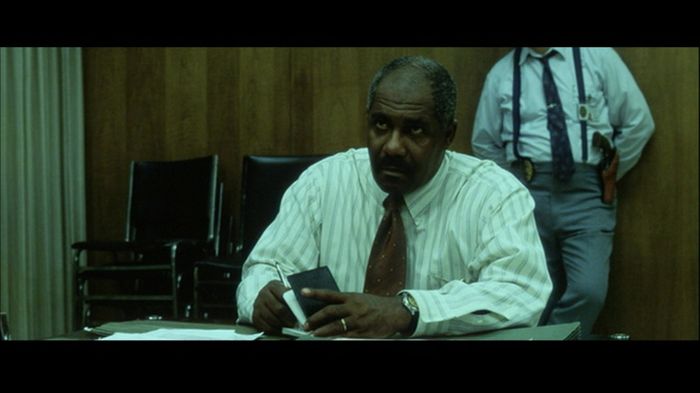
Visual representations are crucial for understanding abstract concepts like “Page Screen Fight Club.” They help us grasp the multifaceted nature of this phenomenon and explore its various interpretations. Different visual approaches can highlight specific aspects, from the underlying conflict to the societal implications. This section explores several methods for visualizing this concept.
Conceptual Metaphors
Conceptual metaphors provide a powerful way to represent abstract ideas through concrete imagery. They allow us to understand complex concepts by mapping them onto familiar experiences. The strength of these representations lies in their ability to evoke an emotional response and stimulate further thought.
| Method | Visual Representation | Explanation |
|---|---|---|
| Metaphorical Landscape | A digital landscape, where towering skyscrapers (representing powerful websites) clash with sprawling, overgrown fields (representing neglected or underfunded online platforms). | This visualization embodies the conflict between dominant and marginalized online spaces, reflecting power imbalances and resource disparities within the digital sphere. |
| Intertwined Networks | A complex network of interconnected nodes, some glowing brightly, others dim and obscured. Thick lines connect the brighter nodes, while thinner lines connect the dimmer ones. | This representation symbolizes the intricate web of online interactions, where some platforms and users hold more influence and visibility than others. |
| Layered Conflict | A layered diagram, with each layer representing a different aspect of the conflict (e.g., algorithms, user behavior, societal impact). The layers overlap and interact, demonstrating the interconnectedness of the elements. | This layered approach highlights the multi-faceted nature of the conflict, showcasing how different factors influence and interact to shape the “Page Screen Fight Club.” |
| Abstract Symbology | A series of abstract shapes, colors, and patterns representing various aspects of the online experience. For example, sharp, angular shapes could represent aggressive rhetoric, while smooth, flowing curves could represent collaborative interactions. | This representation offers a more symbolic approach, focusing on the visual characteristics of the online conflict rather than literal representations. |
Symbolic Representations, Page screen fight club
Symbolic representations utilize symbols to convey specific meanings and emotions associated with the concept. These visual aids can be particularly effective in conveying nuanced emotions and complex ideas.
| Method | Visual Representation | Explanation |
|---|---|---|
| Iconography | A collection of diverse icons, such as a fist clenched around a smartphone, a shield defending a laptop, and a broken screen representing a failed online platform. | This visual approach leverages familiar icons to represent specific aspects of the “Page Screen Fight Club.” The chosen icons evoke a sense of conflict, protection, and vulnerability within the digital space. |
| Color Palettes | A juxtaposition of vibrant, aggressive colors (e.g., red, orange) to represent heated online debates and muted, desaturated colors to symbolize marginalized voices. | The color palette provides an immediate emotional response, helping viewers understand the emotional tone and impact of the “Page Screen Fight Club.” |
| Character Design | A series of stylized characters (humans, avatars, or robots) representing different roles in the online conflict. For example, a character with a determined expression and a futuristic design could represent a powerful online influencer. | This representation emphasizes the human element and the individual roles within the digital sphere. Each character’s design reflects their role and their participation in the online conflict. |
Closing Notes
In conclusion, page screen fight club represents a complex interplay of online interactions, social dynamics, and cultural influences. Understanding its historical context, various interpretations, and associated communities provides valuable insight into the evolving nature of online discourse. While the concept might evoke negative connotations, it also presents opportunities for exploring creative expression and understanding the motivations behind online conflicts.
Ultimately, recognizing the diverse interpretations and implications of page screen fight club allows us to navigate the digital landscape more effectively.

